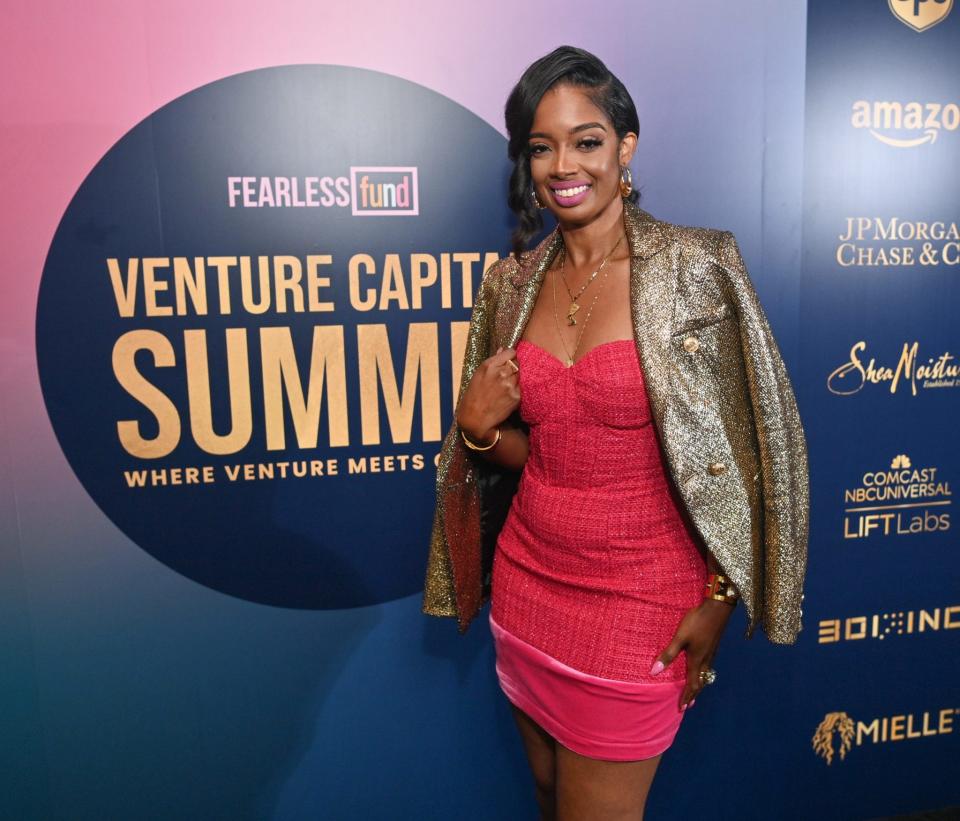The Fearless Fund grant for Black female business owners was ruled discriminatory by an appeals court. Here’s what may happen now.

Sometimes, there are stories where, as a reporter, you just can’t get anyone to talk to you.
This was almost one of those stories.
Fearless Fund, an Atlanta-based VC firm, made headlines last week when a panel of the U.S. Court of Appeals for the 11th Circuit in Miami ruled that the firm suspend its Strivers Grant Contest, issuing a preliminary injunction. In a 2-1 ruling, the court said that it believed the conservative American Alliance for Equal Rights would win its case, alleging that the program—which offers $20,000 grants and focuses on Black female business owners—violates a section of the 1866 Civil Rights Act. So, I thought I’d try to figure out what happens next and how Silicon Valley is thinking about it.
In a deluge of reach-outs—definitely the most I’ve done for anything that wasn’t a feature story—I almost invariably got back nos or radio silence. When I talked to Gunner Cooke partner Bonnie Levine, she was clear that this isn’t specific to my world of coverage at all, that there’s a societal-level chill when it comes to talking about DEI.
“I think the reason it’s gotten so bad is because the entire discourse has been reactive, the entire discourse has been a hot take,” Levine told me. “It’s the ecosystem of sensational headlines, and the algorithms feeding us headlines designed to get us alarmed and worked up about an issue we’re already very worked up about—it’s baked into our entire system to be worked up about issues involving race. Multiply that by the emotion-laden nature of it, and it becomes really taxing. So, it’s not surprising to me.”
VC’s diversity problem is well-known. Last year, just 0.5% of the $140 billion in venture funding of U.S. startups went to Black-founded startups, according to Crunchbase. And with the recent decline in overall startup funding, minority founders are feeling the pinch: Total VC dollars to Black founders in 2023 fell below $1 billion for the first time since 2016, also per Crunchbase. U.S. startups founded solely by women garnered just 2.1% of VC dollars last year, according to PitchBook.
VC firms have said they’re trying to fix the problem—a HubSpot report determined that about 74% of VC firms in the U.S. and Canada have DEI targets internally—but the efforts don’t yet seem to have translated into real-world results.
So, it’s not hard to see why the Fearless Fund ruling is so worrisome to those who care about improving this situation.
I asked Levine: What happens next? Her response was that it is very far from game over for Fearless Fund, and that this ruling is another chapter that needs to be considered in the context of Martin Luther King Jr.’s long “arc of the moral universe.”
The second thing is this: Programs like Fearless Fund’s have long carried some legal risk, but ultimately legal challenges won’t eradicate DEI programs.
“We’re not just going to stop caring about the things we care about,” said Levine. “We’re going to do what everybody does. When a new tax law comes out, you’ve got a bunch of tax lawyers trying to figure out how to optimize tax benefits for their clients. If we get a new DEI law, you’ll have a bunch of lawyers advising clients on how to get the results they want while being in compliance with the law as newly interpreted."
Randall Clark, a partner at law firm Gunderson Dettmer, echoed this view, noting that the fight for diversity will continue, but VCs committed to the fight will have to adapt.
“I’ve never heard a VC fund say, ‘We only back white men,’ but, if you look at their portfolio, you might draw that conclusion,” Clark said via email. “Instead, their mantra is: ‘We back the best founders.’ I could certainly envision a fund that only ‘backs the best founders’ ending up with a portfolio of companies founded by Black women.”
Venture is a space that both increasingly developed DEI initiatives in the wake of 2020—and it’s an industry where DEI still has a long way to go, as those (now legally threatened) programs look to move the needle.
“The default state of DEI in the VC ecosystem is that access to capital for underrepresented founders and funders will be increased in bull years, like 2021, and following a tragedy, like George Floyd’s murder, that forces capital allocators to acknowledge just how differently people from underrepresented backgrounds are treated in this country,” Clark added via email. “Absent one of those factors serving as a catalyst—as we saw with Black founders accounting for only 0.48% of all venture dollars raised last year—it has been, and likely will continue to be, much tougher for underrepresented founders and funders to gain access to capital.”
And for VC firms that are engaged with the challenge of improving equity in the startup ecosystem, I asked Levine if she had any advice.
“This is really hard for people; they all want to know: What’s the best practice? What should we do? The good and bad thing about DEI is that it really should be quite individualized to the workforce and work culture of the company,” said Levine. “Because really, what DEI is, is listening to your communities, your values, and your conscience.”
Maybe, regardless of what is going on in the world, we make sure we’re talking about it.
See you tomorrow,
Allie Garfinkle
Twitter: @agarfinks
Email: alexandra.garfinkle@fortune.com
Submit a deal for the Term Sheet newsletter here.
Joe Abrams curated the deals section of today's newsletter.
This story was originally featured on Fortune.com

 Yahoo Finance
Yahoo Finance 